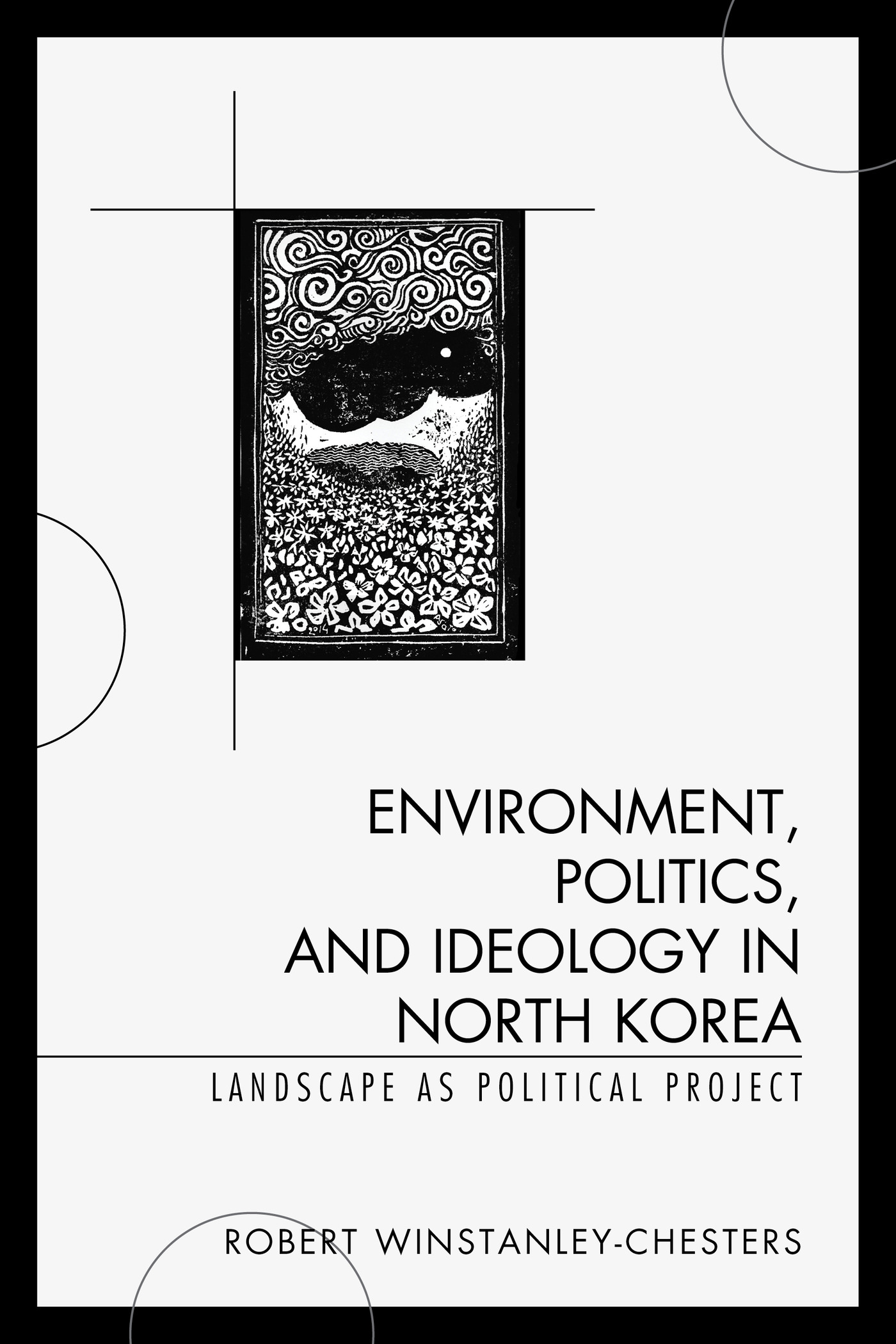Environment, Politics, and
Ideology in North Korea
Environment, Politics, and
Ideology in North Korea
Landscape as a Political Project
Robert Winstanley-Chesters
LEXINGTON BOOKS
Lanham Boulder New York London
Published by Lexington Books
An imprint of The Rowman & Littlefield Publishing Group, Inc.
4501 Forbes Boulevard, Suite 200, Lanham, Maryland 20706
www.rowman.com
Unit A, Whitacre Mews, 26-34 Stannary Street, London SE11 4AB
Copyright 2015 by Lexington Books
All rights reserved. No part of this book may be reproduced in any form or by any electronic or mechanical means, including information storage and retrieval systems, without written permission from the publisher, except by a reviewer who may quote passages in a review.
British Library Cataloguing in Publication Information Available
Library of Congress Cataloging-in-Publication Data
Winstanley-Chesters, Robert, 1975
Environment, politics, and ideology in North Korea : landscape as political project / Robert Winstanley-Chesters.
pages cm
Includes bibliographical references and index.
ISBN 978-0-7391-8777-7 (cloth : alk. paper)ISBN 978-0-7391-8778-4 (electronic)
1. Environmental policyPolitical aspectsKorea (North) 2. LandscapesPolitical aspectsKorea (North) 3. UtopiasKorea (North) 4. Korea (North)Politics and government. I. Title.
GE190.K7W56 2014
363.7'0561095193dc23
2014036935
 TM The paper used in this publication meets the minimum requirements of American National Standard for Information Sciences Permanence of Paper for Printed Library Materials, ANSI/NISO Z39.48-1992.
TM The paper used in this publication meets the minimum requirements of American National Standard for Information Sciences Permanence of Paper for Printed Library Materials, ANSI/NISO Z39.48-1992.
Printed in the United States of America
Dedicated to the memory of Pte Peter Harley, 19342012,
Duke of Wellingtons Regiment B Company 22676172,
Who fought at the Battle of the Hook, May 2829, 1953
Abstract
One of the few areas of the world still divided by the geo-political status quo of the twentieth centurys Cold War, consensus holds that since then unlike the south (the Republic of Korea), the northern half of the Korean peninsula has remained in a state of political arrested development. The confusing, seemingly opaque, defiantly hereditary and definitely dynastic North Korea currently led by Marshal Kim Jong Un on first glance seems to meet this clich. In diplomatic matters North Korea serves as a narratological thorn in the side of international consensus, represented as both dangerous military threat and famine ridden economic basket case. Academic narratives surrounding North Korea, its ideology, policy and functionality are equally confused, opaque and corrupted.
This book seeks to cast light within the confusing gloom, reducing confusion and supporting the reconciliation of corrupted analytical elements through an investigation of North Koreas geographic and ideological environmental narratives. Utilizing tools of critique and investigation sourced from the work of academics such as Han S. Park, Brian Myers, Heonik Kwon, and Patrick McEachern, it analyzes North Koreas self-professed claim to be a geographic space in which revolutionary utopian potentialities have been fulfilled, and the historical narratives within its institutional approach to environmental projects. Using both internal and external material, this book will focus specifically on those narratives addressing the developmental fields of tidal reclamation and forestry/afforestation and ultimately seek to assess both the validity and reality of the North Koreas claims to be a place of geographic lived utopia.
Prefatory Notes
1. When using Romanized words from the Korean language this book has adopted the following policy with regard to their spelling. Acknowledging North Koreas revision of the McCune-Reischauer system of Romanization those place names in North Korea and terms derived from the texts or publications of North Korea or relating to elements of its ideology and politics within the text of this book adopt the spelling of those words as defined by North Korea (this Romanization system excludes diacritic marks). Aside from the main variations of spelling, one key feature (for this book) of this Romanization system is its addition of an acute to accent to the word Juch. When referring to place names or ideological and political concepts that are or have as their source the Republic of Korea (South Korea), this book uses as much as possible the Romanized spelling of these words as defined by the proclamation 2000-2008 from the Republic of Koreas Ministry of Culture outlining a revised strategy Romanization. However when quoting from sources published in the Republic of Korea before this proclamation and where there has not been an updated version I continue to use the standard McCune-Reischauer system.
2. Given the existence of variation in Romanization strategies relating to the Korean language, a second note is necessary to address the usage of personal names within the text. It is the convention in texts from North Korea to capitalize the second parts of Christian names of individuals, whereas this is not so in general usage within the bounds of the Republic of Korea. I adopt these differing strategies depending on the affiliation or source to which and in which the individual is concerned. Christian names are generally hyphenated either side of the DMZ. However these rules do not apply to the names of those in leadership positions in the north, hence this book adopts the naming conventions surrounding the Great Leader, Dear Leader and Young Leaders set out in texts from the DPRK.
3. A third note is necessary to note the fact that this book makes many references to texts and works from North Korea, which have published through its news agency website KCNA.kp and by its most pre-eminent newspaper the Rodong Sinmun. Followers of North Korean matters will be aware of the tumultuous dramatic events of December 2013 which led to the execution of Kim Jong Uns uncle Jang Song Taek. On December 16, 2013 following Jangs execution both North Korean media and publication outlets deleted nearly their entire database of news and reportage. It is not known whether these links and the information they contain will be reposted in future minus references to Jang, but this author has decided to leave these references within the text of this book in anticipation of their reposting. In the meantime, this author has digital copies of all the reports and publications currently deleted yet used within the construction of this book and will gladly furnish any interested parties with copies to aid their enjoyment or scholarship following their reading of this book. NKnews.org has a useful summary of these events at tinyurl.com/porap8t.
Preface
Let us raise a fierce wind of making a fresh leap forward on all fronts of building a thriving country filled with confidence in victory!
Kim Jong Un, 2014
These words from the 2014 New Years Message delivered by Kim Jong Un mark the fulcrum of an expansive text which serves as an unexpected master class in North Korean narrative connectivity. This author had spent much of the final few months of 2013 anticipating whatever new directions developmental approach and environmental construction might adopt in the following year. That was a grand year in environmental terms in North Korea; two large projects (one of which forms the focus of this authors next large research project), the Sepho Grassland Reclamation Project and Masik Pass Ski Resort had produced voluminous reportage and extensive review within North Korean media and connected deeply with extant environmental narratives in the early years of Kim Jong Uns reign. Although portrayed as determinedly modern and technological in focus (indeed Masik Pass serves as North Koreas riposte to South Koreas hosting of the 2018 Winter Olympics), there was something intriguingly old fashioned about the imagery and texts connected to both projects. Flooding at Masik Pass had destroyed much of the early work on the project and the Korean Peoples Army, already intricately involved were called in to mitigate the set back and bring the project to completion. The images of military and marshal might deployed to literally carve a project from a mountainous and forested space served to remind this academic of scenes of similar struggle at Dian Lake near Kunming, Peoples Republic of China in the early 1960s when populations directed and enthused by revolutionary, fervent Maoism were encouraged to fill in the lake with their bare hands. Indeed Masik Pass even gave its name to the new revolutionary speed at which the soldiers were to work, Masik Speed, echoing the efforts undertaken at the behest of Dazhai Speed. Equally coverage and reportage of the project at Sepho, in Kangwon province was replete with images of busily and fully occupied agricultural workers deeply ensconced in productive work and grassy fronds and ideologically inspired shock brigades.
Next page
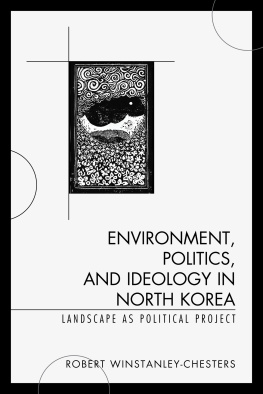

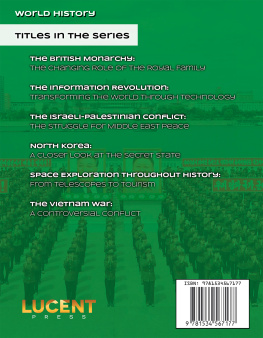
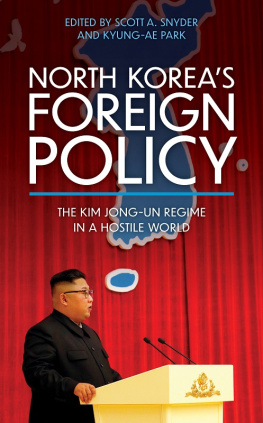
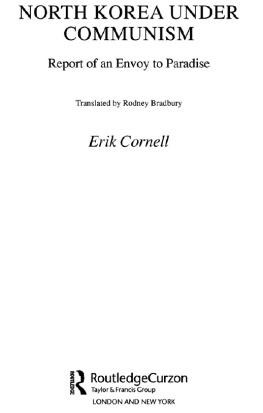
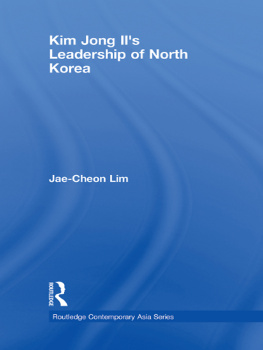
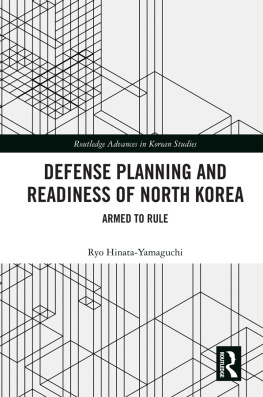
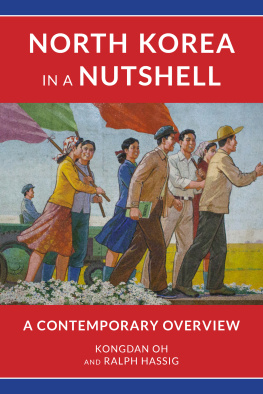

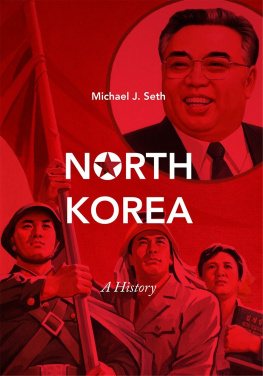
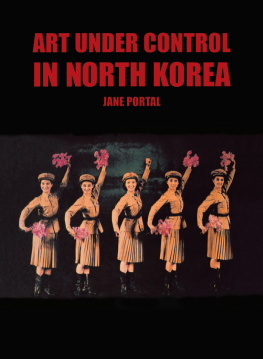
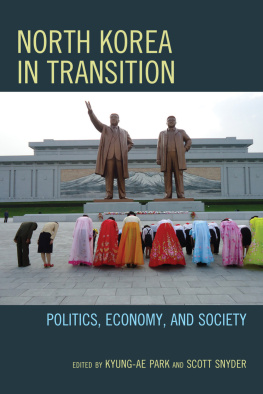
 TM The paper used in this publication meets the minimum requirements of American National Standard for Information Sciences Permanence of Paper for Printed Library Materials, ANSI/NISO Z39.48-1992.
TM The paper used in this publication meets the minimum requirements of American National Standard for Information Sciences Permanence of Paper for Printed Library Materials, ANSI/NISO Z39.48-1992.